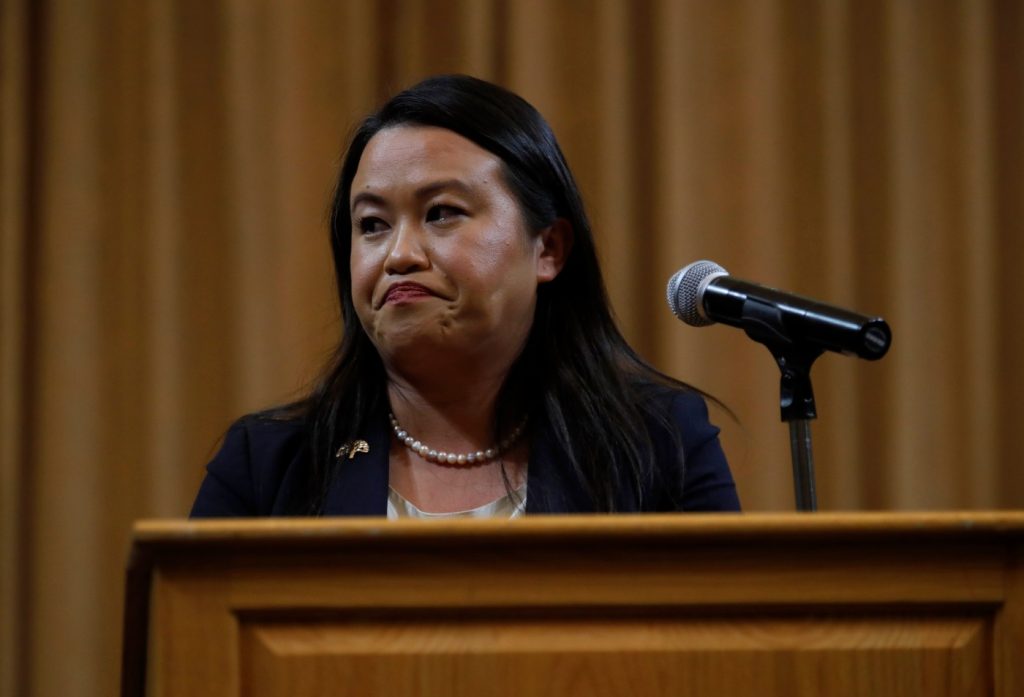Oakland is facing a structural deficit that city officials are likening to the Great Recession of the late 2000s — a revenue shortfall that projects to be $177 million by the end of the current fiscal year in June.
Still, a budget proposal released Thursday by Mayor Sheng Thao would manage to avoid any layoffs to city employees if it is approved by the City Council. The adjustments would be rolled out in the middle year of the city’s two-year budget cycle that wraps in 2025.
The proposal does appear to contain several costly sacrifices, however.
For instance, the city will put revenues from the sale of a major real estate asset — the Coliseum — toward the salaries of thousands of employees, a move that was criticized by financial analysts after Thao announced it on Wednesday.
The city will also freeze numerous positions that are currently unfilled, with city officials indicating that any vacant job is subject to having its budgeted salary redirected elsewhere.
Officials said they also expect to lose workers by attrition, allowing the city to save on salaries without actually forcing an employee to clean out their desk.
Still, word of no layoffs allowed Oakland’s leaders to breathe a sigh of relief this week after rumors had swirled around civilian public-safety workers being cut, and a sixth of the city’s two dozen fire stations being “browned out,” or going being inactive certain nights of the week.
OAKLAND, CALIFORNIA – FEBRUARY 2: Founder of the African American Sports and Entertainment Group, Ray Bobbitt, left, greets Mayor Sheng Thao during a press conference at the Oakland-Alameda County Arena and Coliseum Complex on Thursday, Feb. 2, 2023, in Oakland, Calif. The African American Sports and Entertainment Group is negotiating with Oakland for the city’s 50% interest in the Coliseum complex. (Aric Crabb/Bay Area News Group)
Thao was expected to hold a new conference Thursday morning formally announcing more details of the budget proposal.
Officials said this week that the mid-cycle adjustments will buy them time to be more “strategic” about planning the city’s budget for next year.
That means making certain services more efficient, such as centralizing the payroll divisions across various departments into a singular payroll team in the city’s finance department — a move that is projected to save the city $7.5 million, officials said.
The purchase of the Coliseum by the African-American Sports and Entertainment Group (AASEG) will also save on a huge chunk of the projected shortfalls these next two years.
The Black-led group is planning a massive redevelopment of the East Oakland property, intending to transform it into a new commercial, residential and nightlife hub.
AASEG will pay for the 155-acre complex in East Oakland — including the stadium, arena and in-between parking space — in multiple installments, with officials estimating 60% will be paid this year and 40% the next.
The city and Loop Capital — a Black-owned fund worth of billions of dollars that is backing AASEG’s investment — are still negotiating the final sale price, but officials estimate it will be at least $105 million.
That means the city’s $177 projected deficit this year could be defrayed by something in the ballpark of $60 million by the Coliseum sale. But that’s not enough of a gain for certain onlookers.
“On the face of it, it is generally not considered a good idea to sell a long term asset to solve a short-term budget crisis,” said Steven Falk, who served as Oakland’s acting city administrator for some time last year, and now is a lecturer at UC Berkeley’s Goldman School of Public Policy. “It’s not considered sound fiscal policy, just by public-finance principles.”


